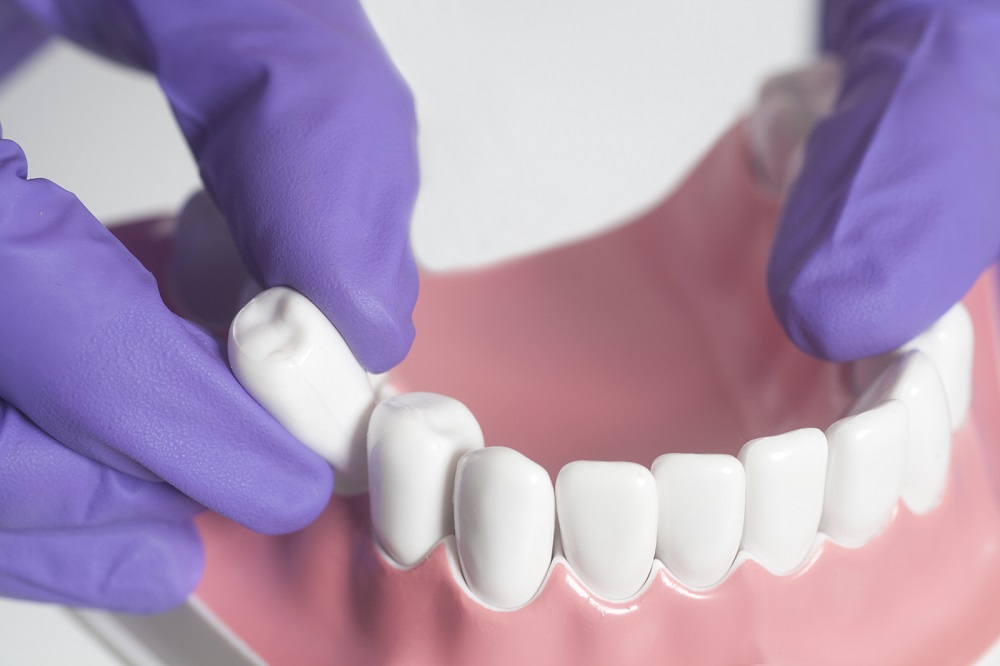An average adult has 32 teeth: 16 on the top, 16 on the bottom. Twelve of these are molars, and each quadrant of the mouth – the back corners of the upper and lower jaws – has three molars.
Humans also have eight incisors (four each at top and bottom in front), four canines (one in each quadrant), and eight bicuspids (two in each quadrant, between the canines and the molars).
Molars are the largest of the teeth. They have broad, flat surfaces, and are meant for grinding and chewing plant-based foods. The molar that is farthest in the back of each quadrant of the mouth, and which appears or “erupts” from the gums as a child gets older, is called a wisdom tooth.
Each wisdom tooth is the third and rear-most of each set of three molars. A child’s wisdom teeth are usually recommended to be removed so that the other teeth do not become crowded over time.
What Are Molars For?
Because humans are omnivores, we must be able to bite, chew, swallow, and digest both meat- and plant-based food. Molars are specially designed for crushing and chewing plant foods into easily swallowable and digestible pieces. They also help to maintain proper positioning of the jaws.
Wisdom teeth are the rearmost of your molars. They often grow crooked or otherwise misaligned, which is also why they are usually removed by a dentist.
What are Wisdom Teeth For?
Wisdom teeth are believed to have helped prehistoric humans chew rougher foods such as roots, nuts, and tough meat. However, modern humans consume softer food with the help of cooking and utensils. Therefore, our teeth do not fall out as quickly and easily as before.
Also, our jaws are now smaller as compared to those of prehistoric humans. The smaller jaw presents some problems when wisdom teeth erupt, because there is less room in the mouth for the new teeth.
Problems of Wisdom Teeth
Dentists often recommend removing wisdom teeth when patients are in their late teens or early 20s. The purpose of this is to avoid any eventual nerve damage in the jaw and to prevent the teeth from overcrowding.
The most severe problem with wisdom teeth is that they can become impacted. This is when the tooth remains beneath the gumline, and the gums grow over the tooth and become inflamed. It is very painful and can cause a harmful infection.
Nevertheless, some people never get their third molars, or wisdom teeth. Some people never have their wisdom teeth removed, but these rear molars do not cause any problems in the person’s mouth and jaws. However, this rarely happens.
Dental Clinic in Plantation, Florida
If you would like to have an experienced dentist check to see whether your wisdom teeth are impacted or not, visit the dental office of Dr. Ernie Soto right here in South Florida. Dr. Soto offers a full range of dental services, from preventive care and family dentistry to orthodontics and cosmetic dentistry.
If you have any questions about our services or would like to make an appointment, call us today at (954) 368-6264 or request an appointment online. We’re here to provide excellent oral health care and beautiful smiles.
Office Hours
MON - THU9:00 am - 5:00 pm
FRI9:00 am - 1:00 pm
SAT - SUNClosed
Address: 10187 Cleary Blvd STE 103, Plantation, FL 33324
Email: jenn@drerniesoto.com
Phone: (954) 368-6264





